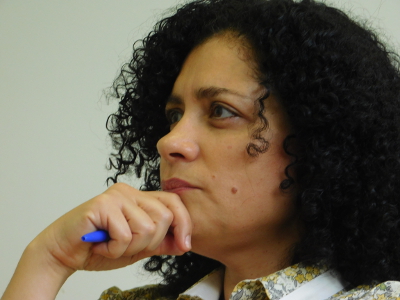
An overview of mathematical literacy in Brazil: an interview with PISA analyst Esther Carvalhaes
Newsletter | May 30, 2017
 |
The 2015 OECD’s PISA result “tells us that most students in Brazil, after spending many years in compulsory education, are unable to make use of mathematics concepts and procedures to perform even basic operations and solve very simple problems.” PISA stands for Program for International Student Assessment, a study to assess the performance of 15-year-old students in various countries on three academic areas: reading, mathematics and science. The recently published 2015 assessment has indicated that Brazil “was well below the average performance of students in the developed world in all three areas tested.”
Video: Soccer derby in the brain
Streaming | May 25, 2017
Time-lapsed visual representation of the vulgarization article "Fla-flu no cérebro," by Antonio Galves. Production: Giulia Ebohon.
Effect of synaptic plasticity on functional connectivity and global activity of a neocortical network model
Publications | May 25, 2017
Renan O. Shimoura, Rodrigo F.O. Pena and Antonio C. Roque
A Naturalistic Assessment of the Organization of Children’s Memories Predicts Cognitive Functioning and Reading Ability
Publications | May 25, 2017
Natália Bezerra Mota, Janaína Weissheimer, Beatriz Madruga, Nery Adamy, Silvia A. Bunge, Mauro Copelli and Sidarta Ribeiro
CMB - apresentações
Lectures | May 16, 2017
Apresentações do encontro “Cultura Matemática no Brasil: diagnósticos e perspectivas”.
| NeuroCineMat |
|---|
|
Featuring this week: |
| Newsletter |
|---|
|
Stay informed on our latest news! |
| Follow Us on Facebook |
|---|




